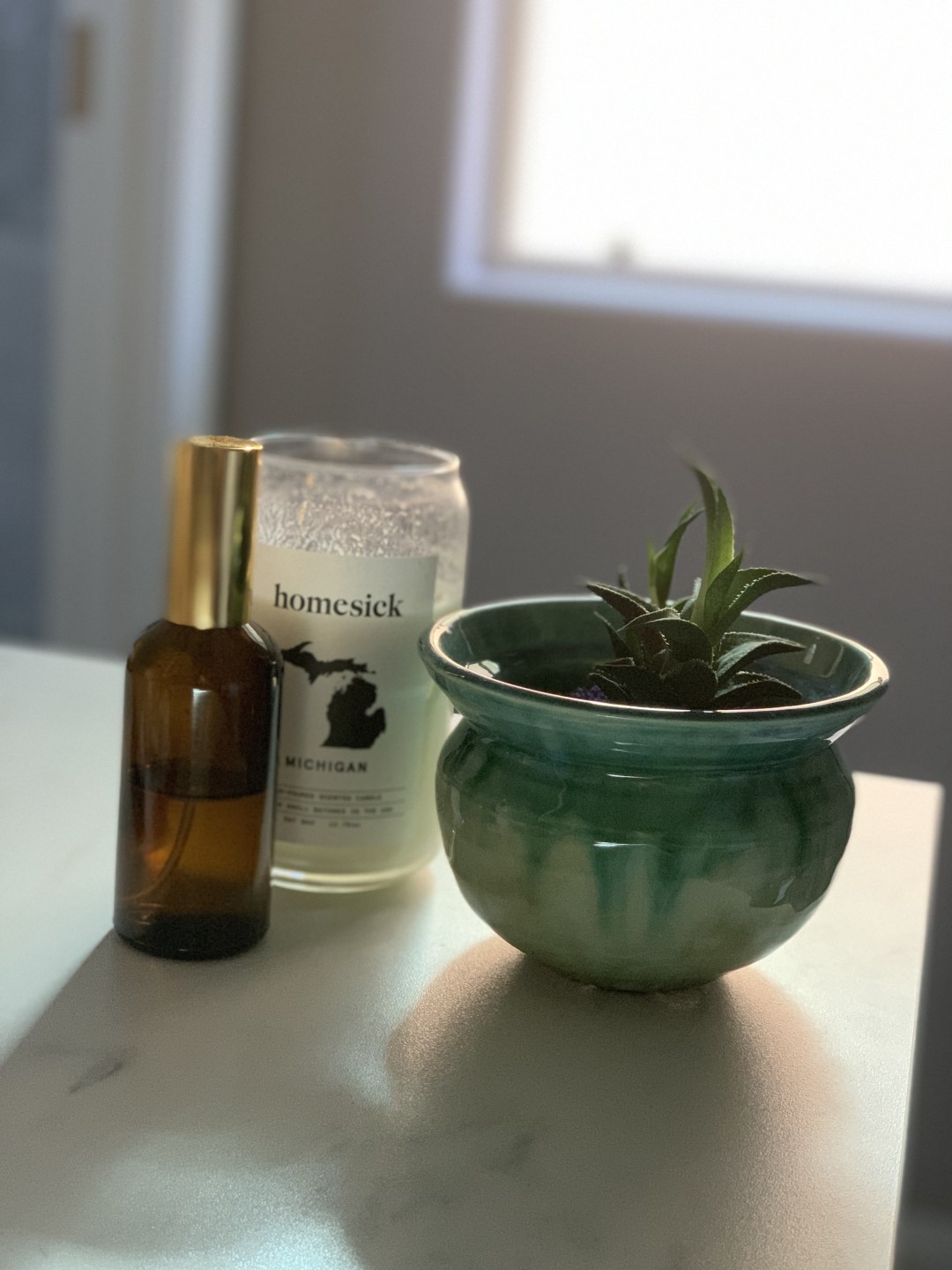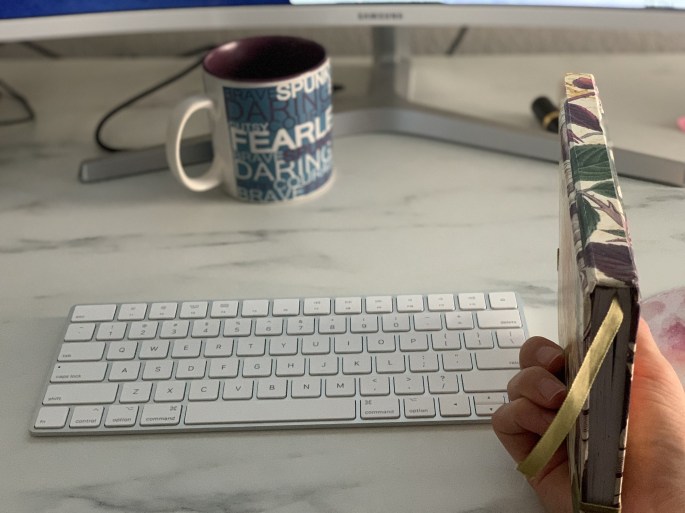To some, working from home may seem like a dream scenario – no commuting, no traffic jams, no need to dress up for work, the flexibility to work with your own schedule… Hell, you don’t even have to put underwear on. Well, that’s all fine and dandy until you start working from home and realize that, like any regular office job, this has its downsides too. One of said downsides is learning how to stay productive amidst all the enticing distractions around you when you’re in the comfort of your own home.
Fortunately, there are ways to stay focused. Here are some tips for how to be productive when you’re a writer working from home.

How to Be Productive: 8 Pro Tips
1. Designate a Space for Your Office
One of the disadvantages of working at home is that you sometimes feel a little too at home. That can hit your productivity hard. Having a designated space in your home for your office can provide some sort of boundary between work and play, and this can help improve your focus and productivity.
The key is choosing the right space and setting it up in a way that allows you to focus on your writing. Here are a few things you should consider.
Privacy
Choosing a place where you won’t get interrupted (preferably a room with a door) when you’re writing is important for finding the ideal space for your office. Also, if you don’t live alone, it’s a smart idea to let your housemates know what time you’re working to keep them from barging in while you’re concentrating on finishing an article or worse, you’re in a virtual meeting with a client.
Lighting
Natural lighting is best, but not all of us have a spare room in our homes with abundant natural light. Fortunately, you can equip your office with artificial lights to reduce eye strain while you’re writing.
Studies show that blue-enriched light can improve work performance , so if you’re setting up lighting for your home office, these types of lights might work best.
Comfortable Office Furniture
You’ll be spending hours in your home office, so try to find comfortable furniture you can work with – like a chair that can support your back to reduce strain and discomfort.
Keep in mind, though, what I said earlier about being too comfortable. Don’t sit in a recliner and expect to get too much done. You still need to feel like you’re in a real office.
I do this thing sometimes where I slouch in my cheapo computer chair and bury myself under a giant blanket. It makes me want to sleep. Not really the best scenario for my office.
Plants
Plants aren’t just pretty to look at. They offer a lot of benefits, including improving air quality and helping your brain work better . Adding a potted plant or two in your home office could potentially improve your concentration.
I love succulents because they’re harder to kill, and I tend to kill plants.

2. Have a Morning Routine
Another tip for how to be productive when you’re working at home is to prepare for work almost the same way you would if you worked in an office.
Try to stick to this routine before you start your workday to prepare your mind and body for the tasks ahead. For instance, make your bed, dress up (avoid working in your pajamas), and make your coffee.
I’ll even put some makeup on so that I don’t look like the crypt keeper anymore. It doesn’t matter if no one is going to see me and I don’t have any video meetings. When I look better, I feel better.
Try it. I bet you’ll notice the same thing.
3. Create a Work Schedule — and Try to Stick to It
Having a flexible schedule is one of the perks of working from home, but if you don’t manage it well, it can prevent you from being productive. So here’s my advice: Schedule your day like you would in an office.
Set a Time for Work
Even when you work from home, it’s still important to determine your working hours. What time do you start work and what time do you stop and call it a day? This can help you utilize your time more efficiently and prevent you from overworking.
This is especially crucial because since we never really “leave” our office — since it’s in our home — it’s tempting to work, seriously, all the damn time. Don’t do this. It’s a slippery slope to burnout.
Schedule a Time for Checking Your Email
Reading and replying to emails take a lot of time, and often, we don’t notice how much until we check our clock and find out that it’s already been an hour, and we haven’t even started on our regular workload.
Here’s another tip for how to be productive at home: Set a schedule for checking your email and ignore it outside of those times. This can prevent you from using a huge chunk of your working hours just to just manage your inbox, and it allows you to utilize more hours for writing and running/growing your business.
I check my emails first thing in the morning, before lunch, and an hour-ish before I “log off” for the day. Believe me — I get the appeal of responding to emails right away, but it’s not only unnecessary but also damaging. Your clients can wait a few hours. It’s going to be okay.
Schedule a Time for Taking and Making Calls
When you’re writing, and you’re in the zone, phone calls can get distracting, so it’s good to set designated times for taking and making calls and to keep your phone silent outside of those times.
Another option is to check your phone and return calls only during your standing or walking breaks to prevent distractions whenever you’re working.
On a related note, this is something to also pass along to your clients. It doesn’t happen often, but I HATE when clients call me out of the blue to shoot the shit for an hour. Schedule. A. Meeting.
You have to set boundaries, or no one will respect your time. Let your clients know that if they ever want to have a call, they need to schedule time with you. You can do this right from Gmail, and I also use and love Calendly . Learn more about that by watching this video.
Schedule Your Breaks
Sometimes, we get so immersed in work that we forget to take some necessary time away from the computer. Taking breaks is important for your productivity, mental well-being, and work performance .
So, eat your lunch on time and away from your home office table, stand up and stretch once every 30 minutes (or every hour), and schedule a 10-minute walking break in between tasks.
4. Stay Away From Social Media
Oh God. If there were ever a monstrous time suck, it’d be social media.
Checking your social media accounts can be tempting, but try to avoid it when you’re working. Browsing your feed can be addicting and can easily suck up a ton of your time, and you won’t even notice it until it’s too late.
If you’re always logged into your social media accounts on your computer, you can either use an incognito or a private window on your browser or log out completely from your accounts when you’re working to avoid the temptation of checking your notifications.
5. Set Small, Realistic Goals, and Write Them Down
Make it a habit to write down your goals for the day before you start your work. This way, you’ll be able to manage your tasks more efficiently and see your progress along the way. Moreover, people who write down their goals are more likely to achieve them.
I’ve got a journal that I write in almost every single day, and it helps me stay motivated and focused.

Try to set specific and realistic tasks. For instance, instead of saying “Complete article about X,” you can break it down and list the subjects you want to discuss in your article.
You can arrange the tasks like a checklist, and cross out things as you complete them. Seeing your progress (as you mark tasks as completed) can be satisfying and encouraging.
6. Do the Hardest Tasks First
Odds are you’re more energized and productive earlier in the day, so get the work that requires the most brainpower done first while your energy is at its peak, before tackling easier and quicker tasks.
Doing this can help ensure that you’re at your best while performing your toughest responsibilities and that you complete more work during the day.
I know that some people feel more productive in the evening or at night. If that’s you, then that works too! The point is to leverage the time when you’re at your freshest. “If you schedule your work hours when you’re firing on all cylinders (and aren’t deep in the trough), you’ll get more done,” says Jackson Cunningham in Home Business Mag .
7. Get Up and Move
Aside from your walking breaks, taking 30 minutes to an hour outside your working hours for some exercise can offer a lot of benefits for your health and your work performance.
It Can Improve Productivity
Exercise can improve your productivity . An Australian clinical trial has found that people who walk a lot and work out in the gym tend to be more productive at work .
If you want to be more productive, get moving!
It Can Inspire Creativity
Working out regularly can help reduce stress, which allows your mind to relax and think clearly. This can inspire creativity and allow you to write better.
It Can Improve Focus
Regular exercise can also improve your ability to focus your attention on your tasks, so you can complete them faster and more efficiently.
8. Log Off for the Day
Finally, just like how you need to start your day at work properly, you also have to end it right. You need to officially log off for the day to enable your mind and body to completely relax.
And when I say log off, I mean really log off. Stop checking your work email, making work-related calls, and doing anything else business-related.
You might work at home, but you shouldn’t be at work 24/7. Having at least somewhat of a work-life balance is essential for your health and wellness. You have to set boundaries between your professional life and personal time to avoid burnout.
If you’re able to get sufficient rest away from work, you’ll be more productive the following day. Don’t hesitate to give your body and mind some time to relax and recharge. You need it (and you deserve it, too).
Working from home is an awesome opportunity, but you need to learn how to manage it properly. Keep a schedule and try to follow it as much as possible. Work during your designated time, and rest outside of it. Work hard, work smart, and always remember to take care of your health.